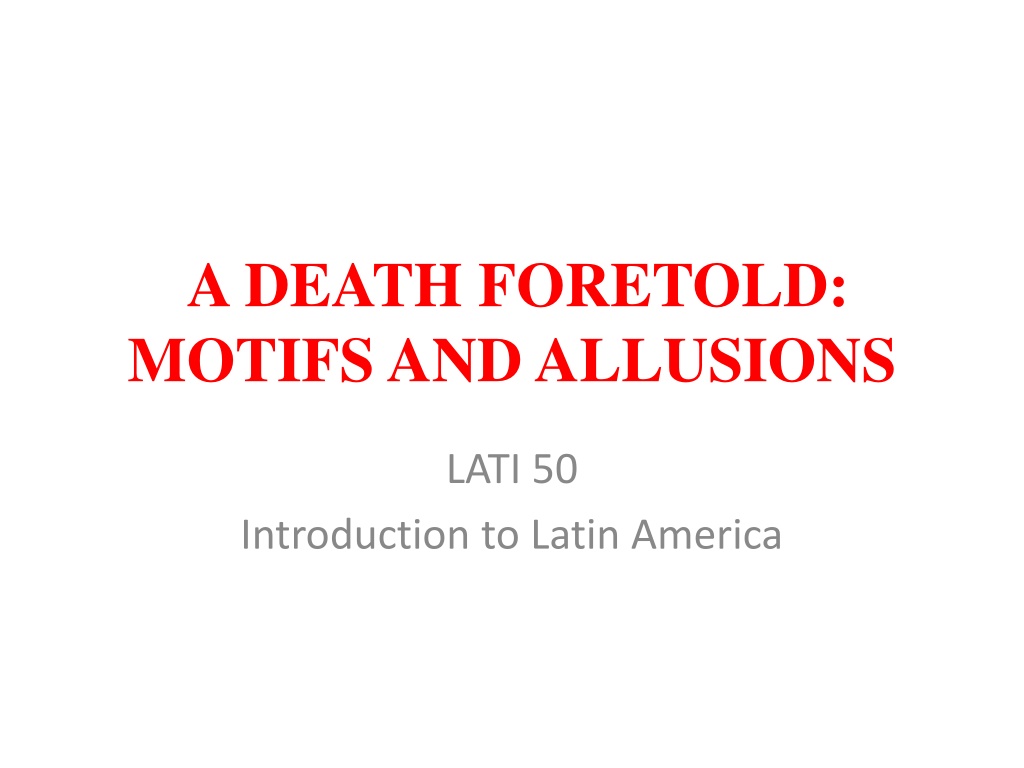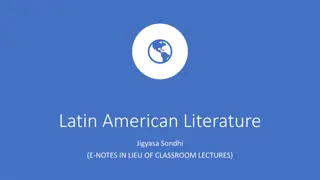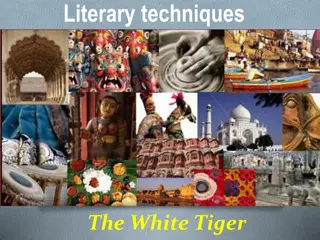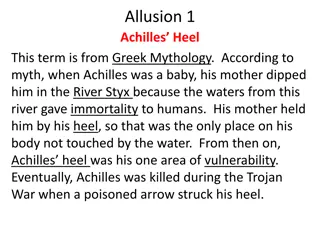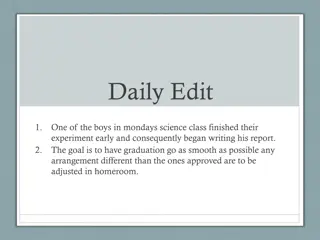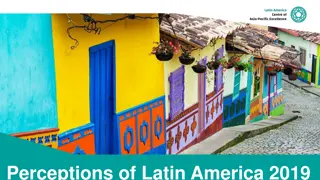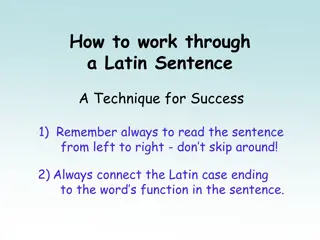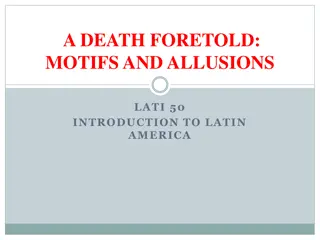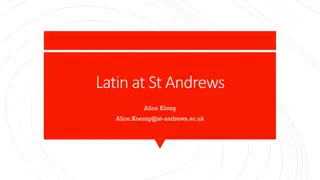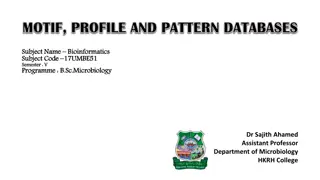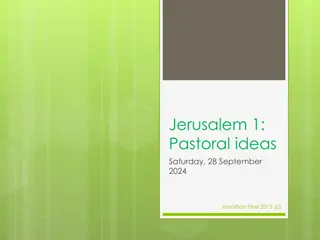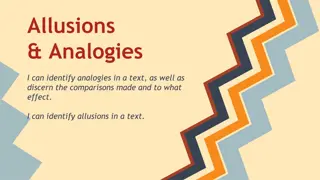Exploring 'A Death Foretold: Motifs and Allusions' in Latin American Literature
Explore the motifs and allusions in Gabriel Garcia Marquez's "Chronicle of a Death Foretold" within the context of Latin American magical realism. Unravel the story of Santiago Nasar, Angela Vicario, and the Vicario brothers in a suspenseful tale of honor, love, and tragedy set against the backdrop of a small town's complicit silence. Reflect on themes of love, gender norms, and societal expectations through the vivid portrayal of characters and events.
- Latin American literature
- Magical realism
- Gabriel Garcia Marquez
- Chronicle of a Death Foretold
- Honor
Download Presentation

Please find below an Image/Link to download the presentation.
The content on the website is provided AS IS for your information and personal use only. It may not be sold, licensed, or shared on other websites without obtaining consent from the author. Download presentation by click this link. If you encounter any issues during the download, it is possible that the publisher has removed the file from their server.
E N D
Presentation Transcript
A DEATH FORETOLD: MOTIFS AND ALLUSIONS LATI 50 Introduction to Latin America
MAGICAL REALISM Controversial term Imagination>objectivity as path to human truth Sublime>mundane, absurd>logical Juxtaposition: massive scale in tiny places Straightforward narration of preposterous people and events
CHRONICLE: STORY LINE Stranger (Bayardo San Rom n) comes to town looking for a bride, settles on Angela Vicario Discovers on wedding night that she is not a virgin, thus provoking crisis of honor She names Santiago Nasar as the perpetrator Her brothers set out to murder Santiago as a matter of honor Ceremonial arrival of bishop that same morning The whole town knows of brothers intentions and no one does anything to stop them. Warning message unseen. Questions: Why? How? Who bears responsibility?
CHARACTERS (I) Santiago Nasar Pl cida Linero (his mother) Ibraham Nasar (father) Mar aAlejandrina Cervantes (madam) Victoria Guzm n (cook) Divina Flor (Victoria s daughter) ClotildeArmenta (storekeeper) Flora Miguel (Santiago s fianc e)
CHARACTERS (II) Angela Vicario (bride) Pedro and Pablo Vicario (brothers) Pur sima del Carmen [de Vicario] (mother) Poncio Vicario (father) Margot (narrator s sister/nun) Luisa Santiaga (narrator s mother) Prudencia Cotes (Pablo s fianc e) Father Carmen Amador (priest) Cristo/Crist bal Bedoya (friend) Bayardo San Rom n (suitor/husband) General Petronio San Rom n (father)
ON LOVE the pursuit of love is like falconry A falcon who chases a warlike crane can only hope for a life of pain. (Note: Santiago Nasar practiced falconry) Love can be learned too.
ON GENDER AND SEX It s time for you to be tamed. (Santiago to Divina Flor) Any man will be happy with them because they ve been raised to suffer. (Angela + sisters) The only thing I prayed to God for was the courage to kill myself. But he didn t give it to me. (Angela)
ON RELIGION Pomp and ceremony: It s like the movies. (Santiago) For the love of God Leave him for later, if only out of respect for his grace the bishop. (Clotilde)
ON HONOR I can imagine, my sons . Honor doesn t wait. (Prudencia s mother) We killed him openly, but we re innocent. Before God and before men, it was a matter of honor. (Pedro and Pablo) I never would have married him if he had nt done what a man should do. (Prudencia) affairs of honor are sacred monopolies, giving access only to those who are part of the drama.
ON PREJUDICE Santiago an Arab, prompting fears of retribution from Arab community Pride in wealth Just like all Turks. Angela disliked Bayardo thinking he was a Jew Magistrate: Give me a prejudice and I will move the world.
REFLECTIONS Code of honor unquestioned Coincidence or inevitability: It s as if it already had happened. (Pablo to Pedro) Guilt or innocence Passivity, responsibility, and community
